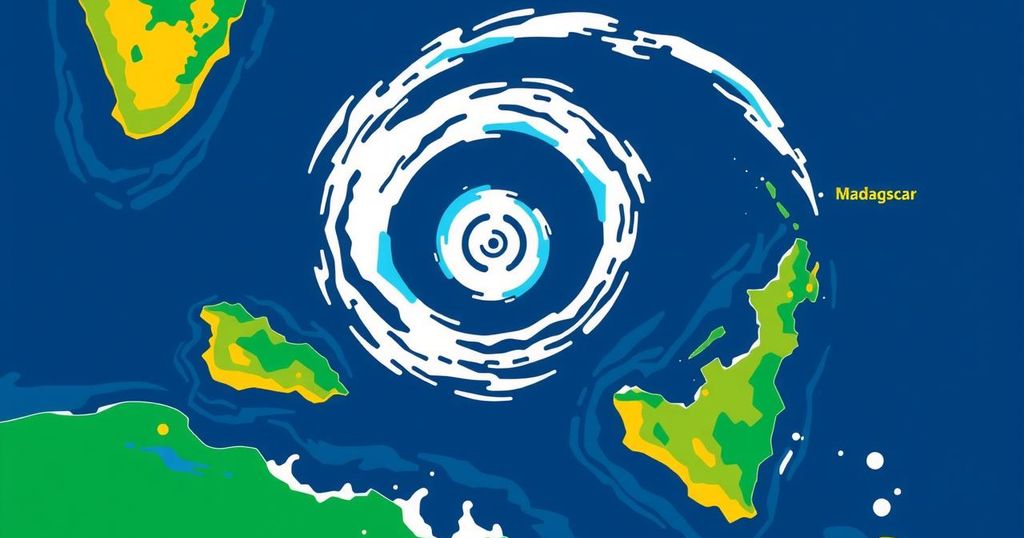World news
AFRICA, CLIMATE CHANGE, CRM, DISASTER MANAGEMENT, FLOODING, INGC, INSTITUTO NACIONAL DE GESTÃO DE CALAMIDADES, INSTITUTO NACIONAL DE GESTAO DE CALAMIDADES, MALAWI, MAYOTTE, MOHELI, NATIONAL INSTITUTE FOR DISASTER MANAGEMENT, NATURAL DISASTER, NATURAL DISASTERS, SOUTHWESTERN INDIAN OCEAN
Sofia Rodriguez
0 Comments
Devastating Impact of Tropical Cyclones in the Southwestern Indian Ocean
Tropical Cyclone Chido has launched a devastating cyclone season in the Southwestern Indian Ocean, causing significant destruction across Madagascar, Mozambique, and Malawi. With over 172 fatalities and extensive property damage, relief efforts are crucial. Cyclone Dikeledi followed, compounding the challenges, while flooding remains a persistent issue. The response involves significant humanitarian efforts aiming to enhance community resilience and preparedness in the face of ongoing threats.
Tropical Cyclone Chido has marked the onset of a destructive cyclone season in the Southwestern Indian Ocean for 2024/2025, forecasted to be above-average, posing risks to regions such as the Mascarene Islands, Madagascar, and Mozambique. Chido, reaching Category 4 status with winds up to 220 km/h, resulted in significant loss of life and injuries, severely impacting communities, particularly in Madagascar where over 135,800 individuals were affected due to its destructive passage.
The effects of the cyclone were acutely felt across Madagascar, with heavy rains leading to subsequent flooding that hampered agricultural outputs. The Malagasy Red Cross Society is actively involved in relief efforts, issuing warnings and evacuating at-risk communities. Moreover, a week of mourning was declared in Comoros, highlighting the extensive societal impact, while approximately 100,000 individuals in Mayotte presently lack adequate shelter, food, and sanitation following the cyclone’s aftermath.
Mozambique faced considerable destruction as well; around 90,640 households were impacted with substantial property damage reported. Malawi, too, experienced significant hardships with nearly 46,000 people affected as strong winds and rains caused widespread devastation. Humanitarian efforts are being bolstered through the support of the Red Cross National Societies, facilitating rescue operations and the provision of essential supplies.
Cyclone Dikeledi followed Chido, further complicating recovery efforts; it caused extensive disruption to schooling and infrastructure in northern Madagascar and continued its destructive path into Mozambique. The government’s response included high-level visits to augment humanitarian assistance and activation of evacuation protocols in anticipation of the cyclone’s landfall.
Additional tropical systems, Honde and Garance, further escalated challenges in late February, particularly impacting southern Madagascar and La Réunion. The flooding situation remains dire across Southeastern Africa, leading to overwhelming displacement and increased casualty figures, necessitating ongoing disaster management.
As flooding risks persist, various national and local agencies are activated to enhance preparedness and response should adverse conditions continue. The Emergency Appeal emphasizes enhancing the readiness of the International Federation of Red Cross and Red Crescent Societies while striving to fortify at-risk communities to withstand future calamities, as the cyclone season progresses into April.
In summary, Tropical Cyclone Chido initiated a series of destructive events across the Southwestern Indian Ocean, highlighting the vulnerabilities of nations like Madagascar, Mozambique, and Malawi. The aftermath has led to loss of life, extensive infrastructural damage, and severe humanitarian needs. Timely responses from various agencies, including the Red Cross, are essential to aid recovery, while ongoing preparedness efforts are crucial to mitigate the effects of future cyclones.
Original Source: reliefweb.int




Post Comment